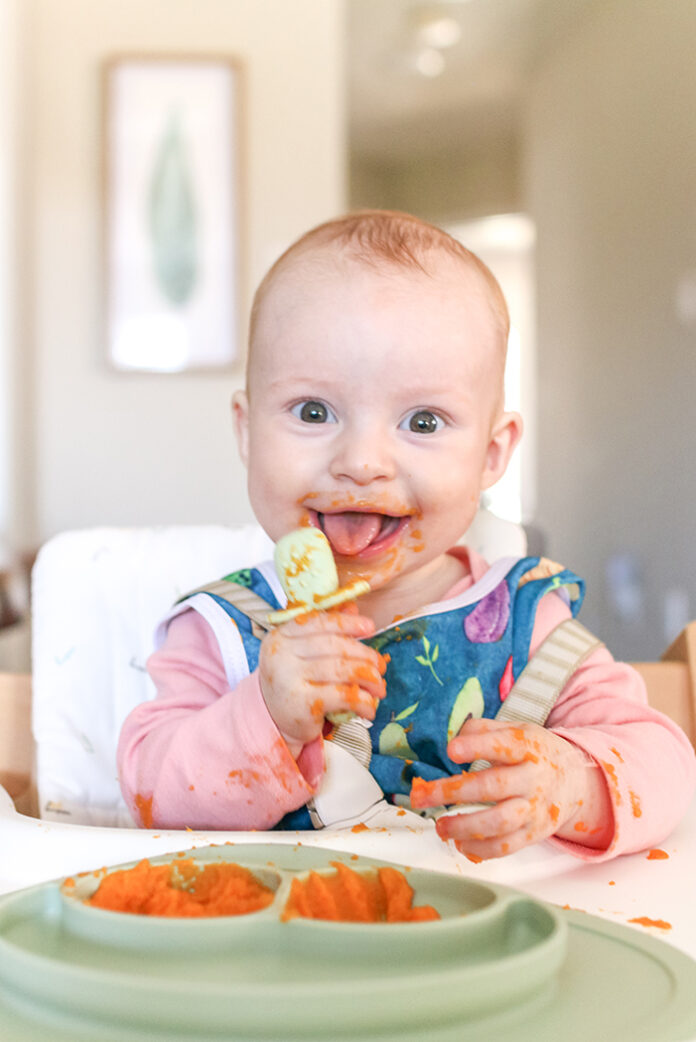Introduction to 10 best food baby healthy
Welcome to our comprehensive guide on providing a healthy diet for your baby. In this article, we will delve into the importance of nourishing your little one with the right foods. A well-balanced diet is crucial for their growth and development, setting the foundation for a lifetime of good health.
Why a healthy diet is important for babies
As a parent, you want the best for your child, and nutrition plays a key role in their overall well-being. Providing a healthy diet for your baby helps support their immune system, brain development, and physical growth. By offering nutrient-rich foods, you are setting them up for a healthy future.
Nutritional needs for baby’s growth and development
Understanding your baby’s nutritional needs is essential for their optimal growth and development. During the first year, their diet should consist of a variety of nutrients, including:
- Proteins: Essential for building and repairing cells.
- Carbohydrates: Provide energy for your baby’s activities.
- Fats: Aid in brain development and overall growth.
- Vitamins and minerals: Support various bodily functions.
Top 10 nutritious foods for babies
When it comes to introducing solid foods to your baby, it’s important to offer a wide range of nutritious options. Here are the top 10 foods that are packed with essential nutrients:
- Avocado: Rich in healthy fats and loaded with vitamins.
- Spinach: A great source of iron and other essential minerals.
- Sweet potatoes: Packed with beta-carotene and fiber.
- Blueberries: Full of antioxidants and vitamins.
- Salmon: Provides omega-3 fatty acids for brain development.
- Quinoa: A complete protein and gluten-free grain.
- Greek yogurt: High in protein and probiotics for a healthy gut.
- Broccoli: Rich in vitamins C, A, and K.
- Chickpeas: A good source of protein and fiber.
- Oatmeal: Offers fiber and essential nutrients.
Tips for introducing solid foods to your baby
Introducing solid foods to your baby can be an exciting but sometimes challenging journey. Here are some helpful tips to make the process smoother:
- Start with single-ingredient foods: Begin with simple purees to identify any potential allergies.
- Go slow and observe: Introduce one new food at a time and monitor your baby’s reaction.
- Texture matters: Gradually transition from purees to mashed and then finger foods to develop their chewing skills.
- Be patient: It might take a few attempts before your child acknowledges another food. Try not to surrender!.
Healthy snack ideas for babies
Snack time can be an opportunity to offer nutritious treats to your baby. Here are some healthy snack ideas:
- Sliced fruits: Offer a variety of soft fruits like bananas, peaches, and melons.
- Steamed veggies: Carrots, green beans, and zucchini make great finger foods.
- Whole grain crackers: Search for choices made with entire wheat or other entire grains.
- Yogurt bites: Freeze Greek yogurt in bite-sized portions for a refreshing snack.
- Homemade muffins: Whip up nutritious muffins using whole wheat flour and fruits.
How to promote healthy eating habits in your baby
Instilling healthy eating habits early on is crucial for your baby’s long-term well-being. Here’s how you can promote healthy eating habits:
- Lead by example: Allow your child to see you partaking in different good food sources.
- Make mealtime enjoyable: Create a pleasant environment and introduce different flavors and textures.
- Involve your baby: Allow them to explore and self-feed with appropriate finger foods.
- Offer a variety of foods: Introduce different fruits, vegetables, grains, and proteins to expand their palate.
Common mistakes to avoid when feeding your baby
When it comes to feeding your baby, it’s important to be aware of common mistakes to ensure their nutrition is on track:
- Adding salt or sugar: Avoid adding salt or sugar to your baby’s food as their kidneys and taste buds are still developing.
- Skipping allergenic foods: Introduce potential allergenic foods early, following your pediatrician’s guidance.
- Force-feeding: Allow your baby to eat at their own pace and respect their hunger and fullness cues.
- Using food as a reward: Avoid associating food with emotions or using it as a reward or punishment.
Recipes for homemade baby food
Preparing homemade baby food can be a rewarding experience. Here are a few simple and nutritious recipes to get you started:
- Apple and pear puree: Steam and blend equal parts of apple and pear for a sweet treat.
- Carrot and sweet potato mash: Boil carrots and sweet potatoes until soft, then mash together.
- Quinoa and vegetable medley: Cook quinoa and mix with steamed vegetables of your choice.
- Spinach and banana smoothie: Blend fresh spinach leaves with ripe bananas and a splash of water.
Conclusion
In conclusion, providing a healthy diet for your baby is of utmost importance for their growth and development. By adhering to the guidelines discussed in this article, you can ensure that your little one receives the essential nutrients they need for a thriving start in life. Remember, a healthy baby is a happy baby!


